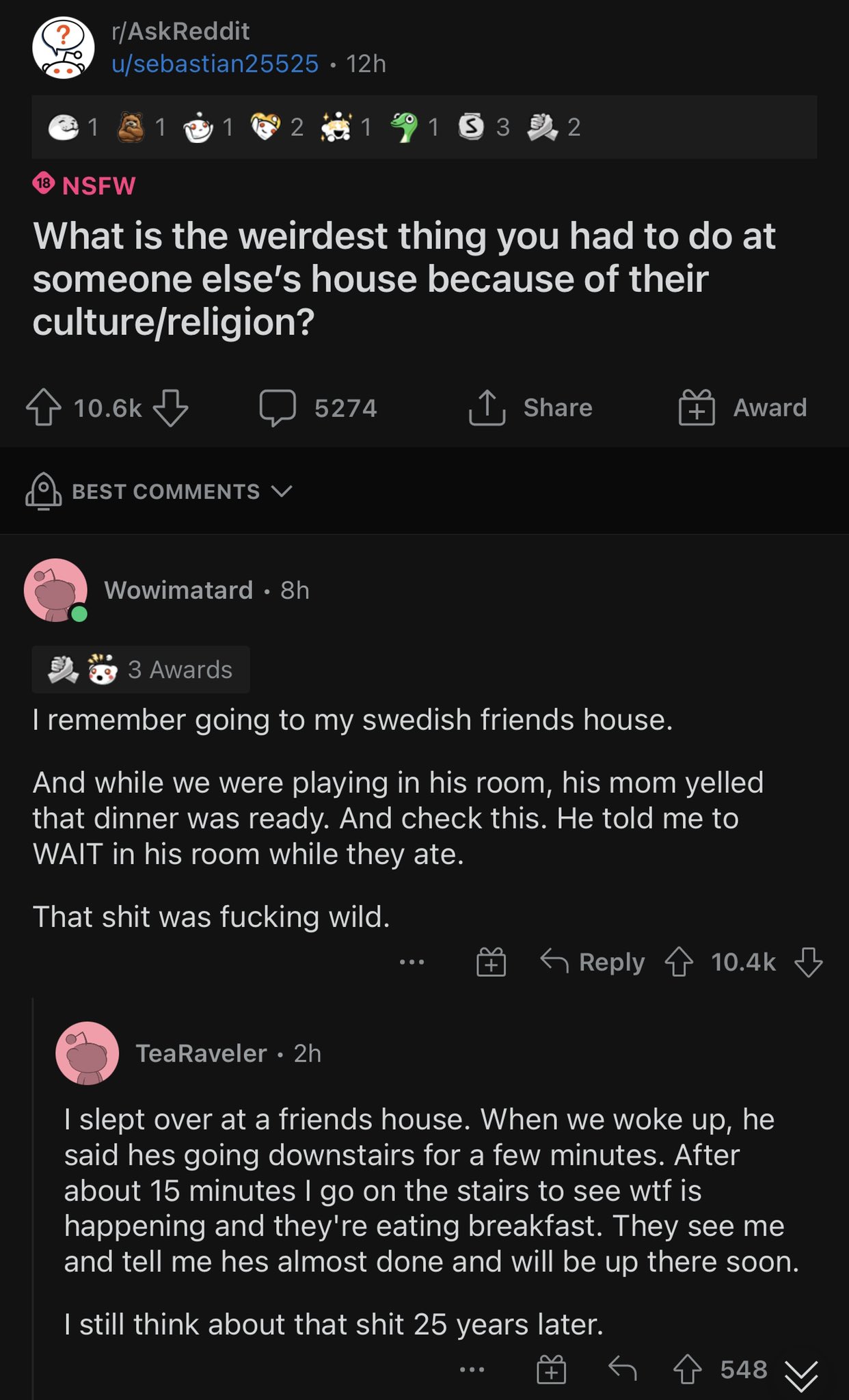Unless you haven’t been on social media the past week, you may have heard of #SwedenGate, which basically painted Sweden in a bad light when it comes to hospitality. The whole thing blew up because of a Reddit forum answer, which prompted both Swedish and non-Swedish users to give their opinions on the Swedish tradition of not serving food to guests, particularly children, in certain situations.
Swedes don’t often feed guests (particularly children)
The controversy started on the Reddit forum r/AskReddit, where a user asked: “What is the weirdest thing you had to do at someone else’s house because of their culture/religion?”
Wowimatard wrote about having to wait in a friend’s room while he had dinner with his family, while TeaRaveler had a similar experience after a sleepover at a friend’s house, when the friend had breakfast with family without him:

The thread was posted on Twitter, where the whole #Swedengate exploded. Here are some other examples of people who’ve had similar experiences with Swedes or in Sweden about not being fed when they’re over at their friends’ houses:
The Swedes confirm that this is a cultural norm, with many older Swedes growing up with this mindset. The reason they don’t feed children who come over to visit is twofold:
- Swedes don’t normally serve children dinner (or even snacks) because having dinner with the family is a tradition, and they expect the child to have dinner at his/her family’s home. That way the child’s parents don’t waste food they’ve prepared.
- Being very efficient with food, Swedes often cook just enough for their own family, so if someone shows up unannounced, there often isn’t enough food to go around (and guests normally don’t expect food). However, a visiting child/guest is usually welcome to any leftovers.
This mindset extends over to other situations
Beyond food and feeding guests, some people have had experiences with another aspect of hospitality: spending the night. When you’re invited to stay with a Swede, you’re often expected to bring your own sheets/pillowcase covers and towel.
While this isn’t a widespread practice, it’s more common when it comes to staying over a someone’s summer home (which is usually more of a glorified hut with bare necessities). In this aspect, the Swedes pride themselves at not being a burden to their hosts – by bringing their own linen, they save the hosts the trouble of washing them.
Sweden – like other Scandinavian nations – has a culture where the onus is on the guest not to be an imposition, rather than the host to provide welcome. Some have linked the practice with Nordic Viking culture, where a meal is often seen as a debt. In the Norse culture, an unpaid debt often resulted in violent duels.
Swedes respond with humour
While most Swedes explain the reasoning behind their customs and practices, some Swedes joined in the fun with joke tweets like:
How netizens responded
Most netizens responded with surprise at the lack of hospitality, chiming in that serving meals to a guest would be the norm in most other countries as they take pride in their hospitality. One of the reasons cited for the practice in Sweden was poverty, but netizens from other parts of the world – like Asia, Africa, Spain – cited the same problems, but even then, no guest would starve in their household.

Many pride themselves and their culture for their hospitality – they’re simply honoured to serve their guests without any expectations of reciprocation or compensation. Some of them are hospitable to a fault: even the Saudi Arabian government is urging people not to feed the census workers in this ad:
This tweet sums up the entire #Swedengate:











